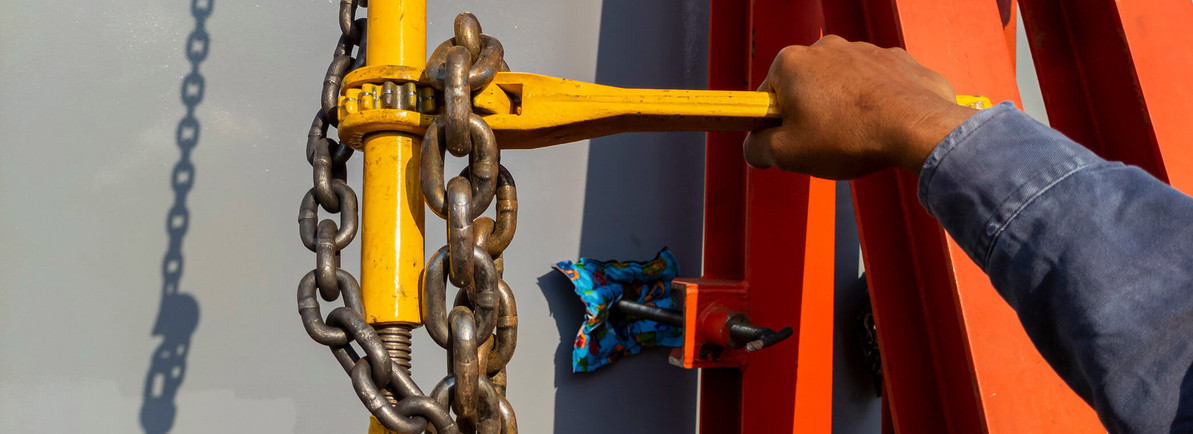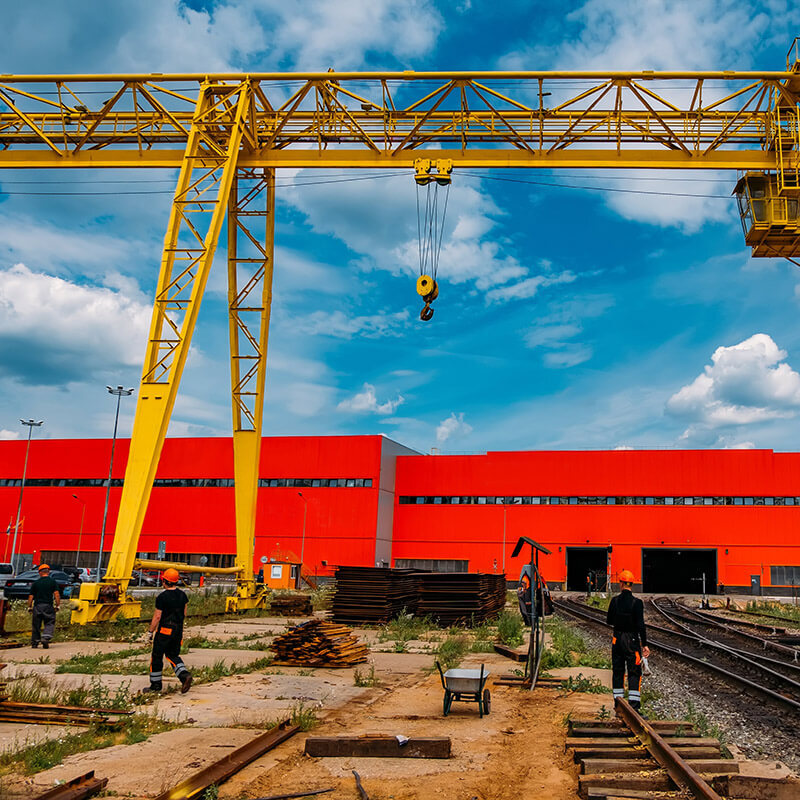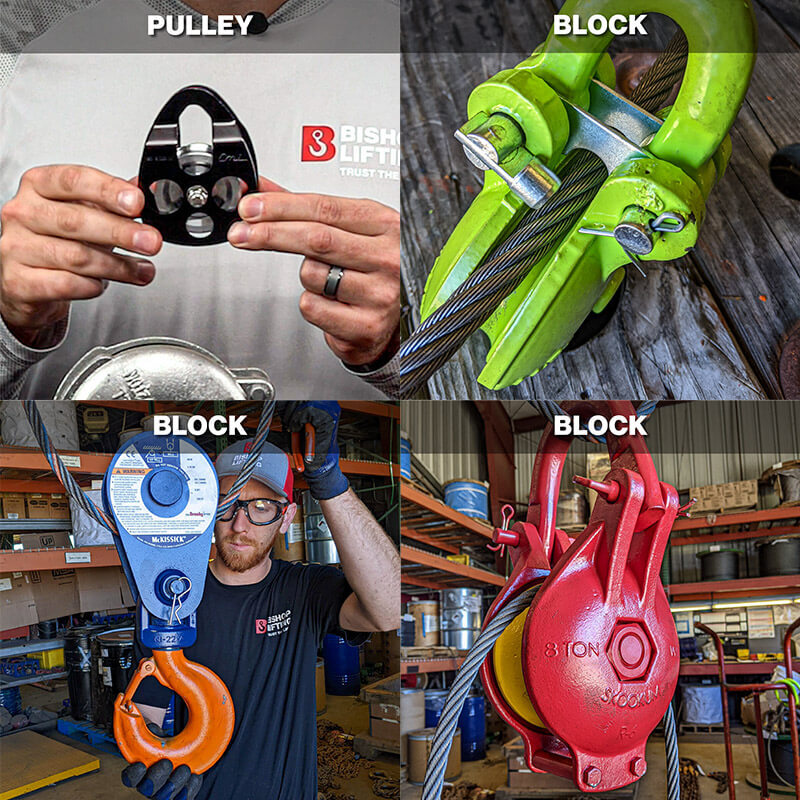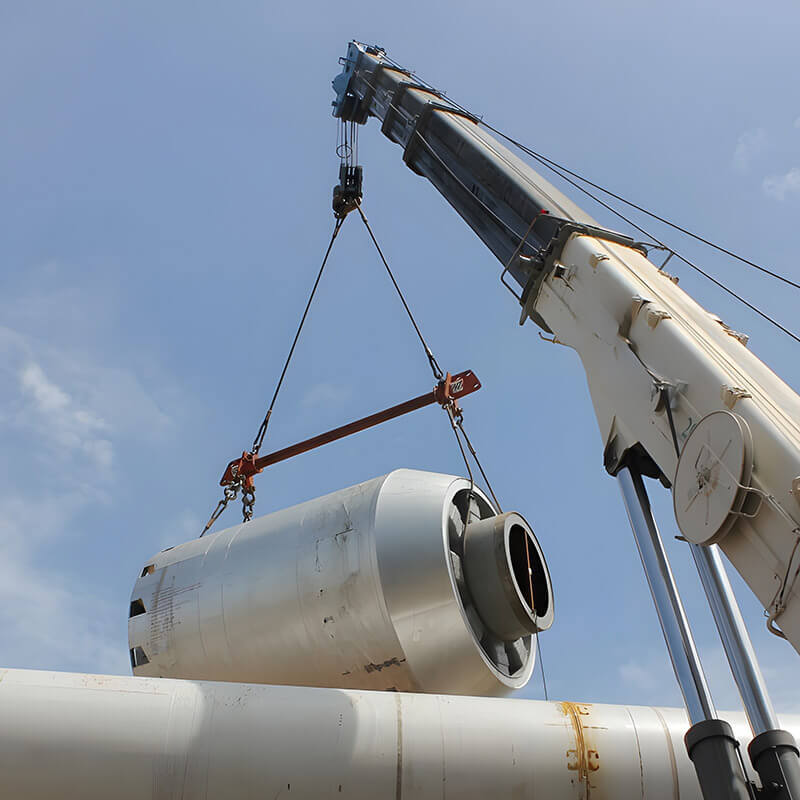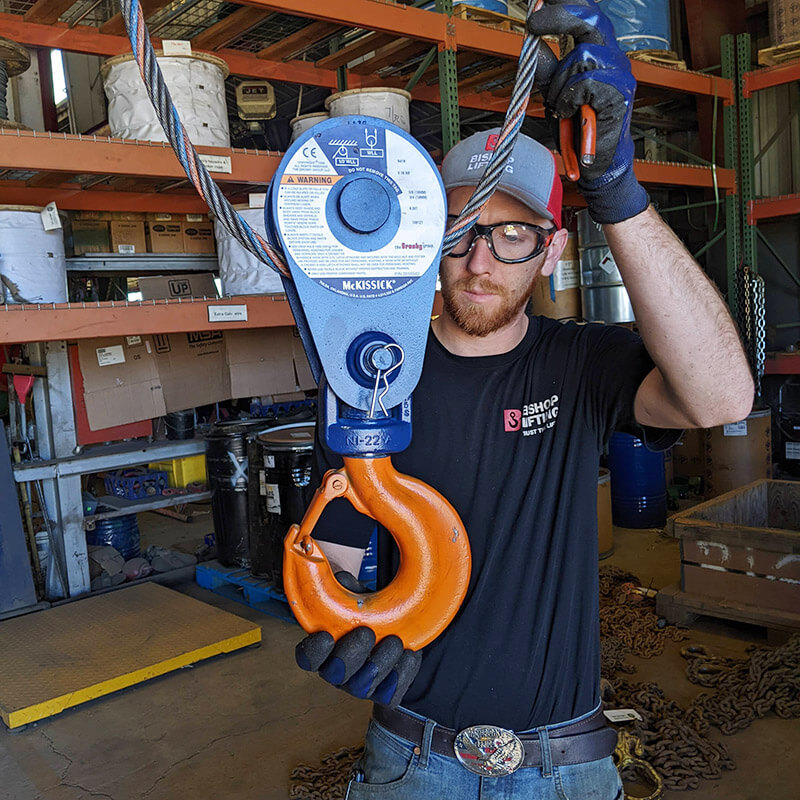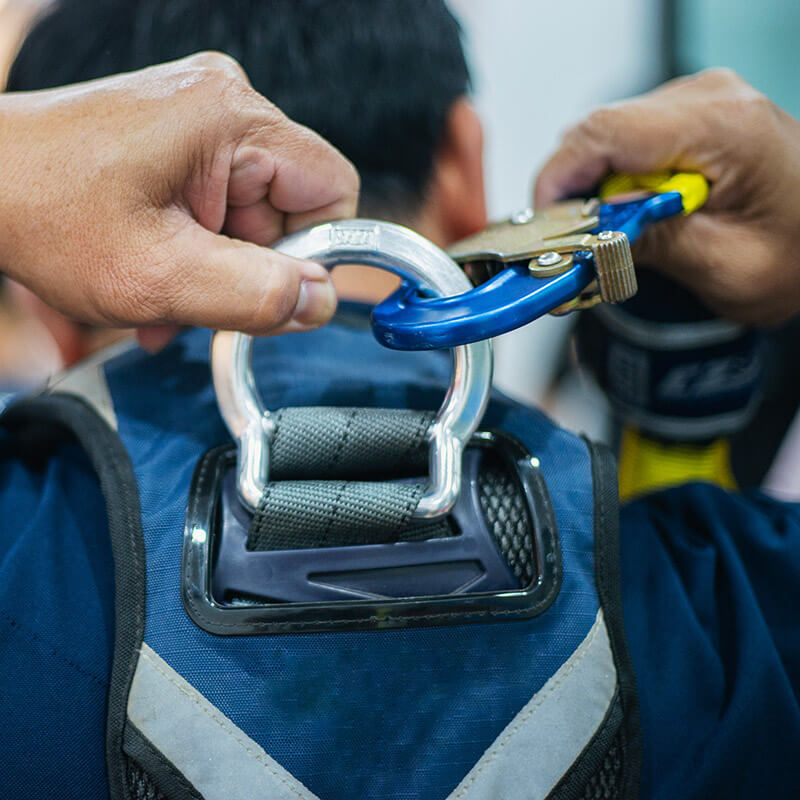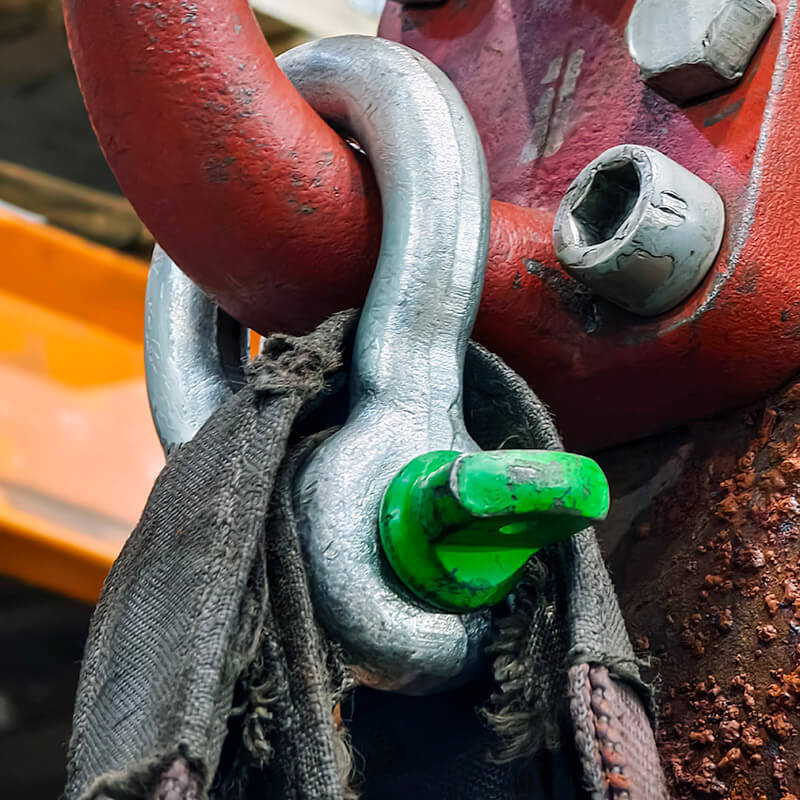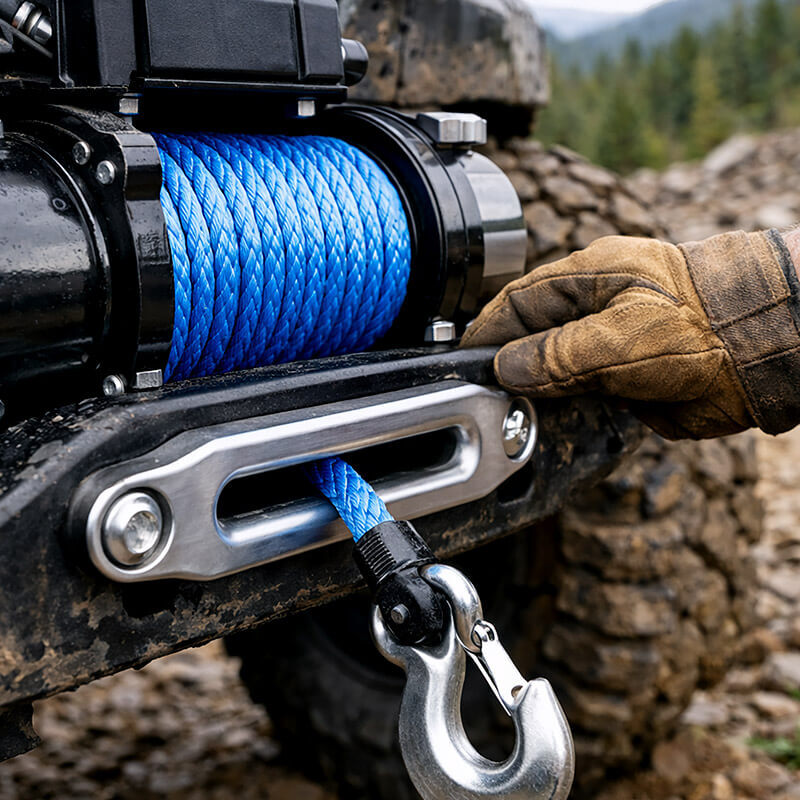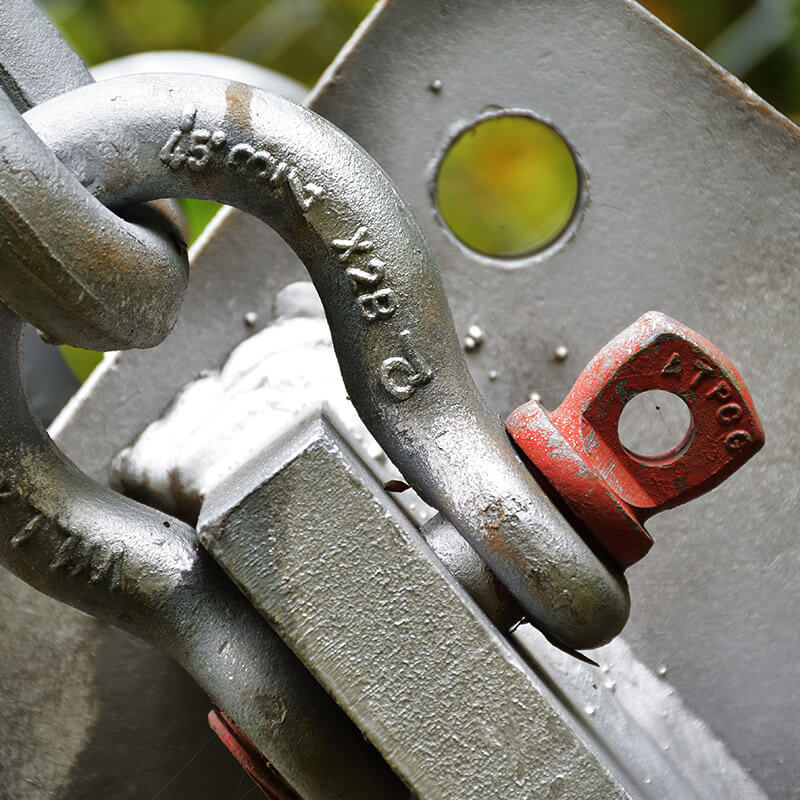Can Grade 70 Chain Be Used for Lifting?
When it comes to rigging and lifting operations, safety starts with choosing the right equipment — and not all chains are created equal. Grade 70 chain, commonly used for transport and load securement, is not designed or rated for overhead lifting.
If you're wondering whether you can use Grade 70 chain for lifting, the answer is straightforward: No. Here's why.
What Is Grade 70 Chain Designed For?
Grade 70 chain, often called transport chain or trucker’s chain, is made from heat-treated carbon steel and features a recognizable gold chromate finish. This finish not only distinguishes it visually from lifting-grade chains but also provides moderate corrosion resistance — ideal for tie-downs and load securement.
- Flatbed load securement
- Vehicle recovery and towing
- General cargo restraint
While it's rugged and strong, Grade 70 chain does not meet OSHA or ASME requirements for overhead lifting. It is not proof-tested or certified for that application.
Why Grade 70 Chain Should Not Be Used for Lifting
According to ASME B30.9 and OSHA 1910.184, chains used for overhead lifting must be alloy steel and clearly marked with grade and manufacturer identification. Grade 70 chain fails both requirements.
- Not alloy steel: Lifting chains are typically made from alloy steel (e.g., Grades 80, 100, 120)
- No lifting certification: Grade 70 chains are not tested or tagged for lifting
- Reduced ductility: Lower elongation and shock resistance compared to lifting-grade chains
Using Grade 70 chain in a lifting scenario could result in sudden failure, serious injury, or legal liability.
What Chain Grades Are Safe for Lifting?
| Chain Grade | Material | Lifting Certified | Typical Use |
|---|---|---|---|
| Grade 70 | Carbon Steel | ❌ No | Transport, towing |
| Grade 80 | Alloy Steel | ✅ Yes | General overhead lifting |
| Grade 100 | Alloy Steel | ✅ Yes | Heavy-duty lifting |
| Grade 120 | Alloy Steel | ✅ Yes | High-strength lifting |
You can explore certified Grade 80, 100, and 120 lifting chains on Lifting.com — all tested to meet or exceed ASME and OSHA standards.
Inspection and Best Practices for Lifting Chains
- Check for cracks, gouges, or bent links
- Look for signs of stretching or wear
- Ensure all manufacturer markings and tags are legible
- Remove any damaged or questionable chain from service
Need help inspecting or tagging your lifting gear? Our team at Bishop Lifting is here to help.
Conclusion
While Grade 70 chain is strong and reliable for transport, it has no place in overhead lifting operations. For lifting tasks, always use chain grades designed and rated for that purpose — Grade 80, Grade 100, or Grade 120 — and ensure your rigging gear is inspected, tagged, and certified.
At Bishop Lifting, we offer a full line of certified lifting chains, rigging hardware, slings, hoists, and PPE — ready to ship to your job site.
Visit Lifting.com to browse our full catalog and keep your team safe and compliant.
FAQs
Can Grade 70 chain be used for lifting? No. Grade 70 chain is not certified or designed for lifting. Use Grade 80 or higher.
What is Grade 70 chain made of? Heat-treated carbon steel, typically finished with gold chromate for corrosion resistance.
What chains are approved for lifting? Grade 80, Grade 100, and Grade 120 chains made from alloy steel and certified for lifting per OSHA and ASME standards.
How often should lifting chain be inspected? Before each use and at regular intervals, per ASME B30.9 and your company's inspection schedule.
Need Rigging Help?
Have questions about lifting chain or need help selecting the right gear? Contact our experts at Lifting.com — we’ve been supplying the rigging and lifting industry for over 40 years.
Shop Certified Lifting Chains Now
Explore Grade 70 and Grade 100 Lifting Chains on Lifting.com
Lifting vs. Rigging Equipment: What’s the Difference (and What You Actually Need)?
Feb 24th 2026
The Complete Buyer’s Guide to Overhead Cranes
Feb 13th 2026
Which Pulley Can Lift Heavy Loads?
Feb 11th 2026
When Should a Spreader Bar Be Used for Lifting?
Feb 3rd 2026
How to Use a Snatch Block Safely (Step-by-Step for Rigging & Pulling)
Jan 30th 2026
What Is the “New” OSHA Standard for Fall Protection?
Jan 27th 2026
The 3 Main Types of Shackles (and How to Choose the Right One)
Jan 19th 2026
How to Secure a Synthetic Winch Rope to a Winch (Correctly & Safely)
Jan 12th 2026
Which Shackle Is Most Commonly Used in Rigging?
Jan 5th 2026

